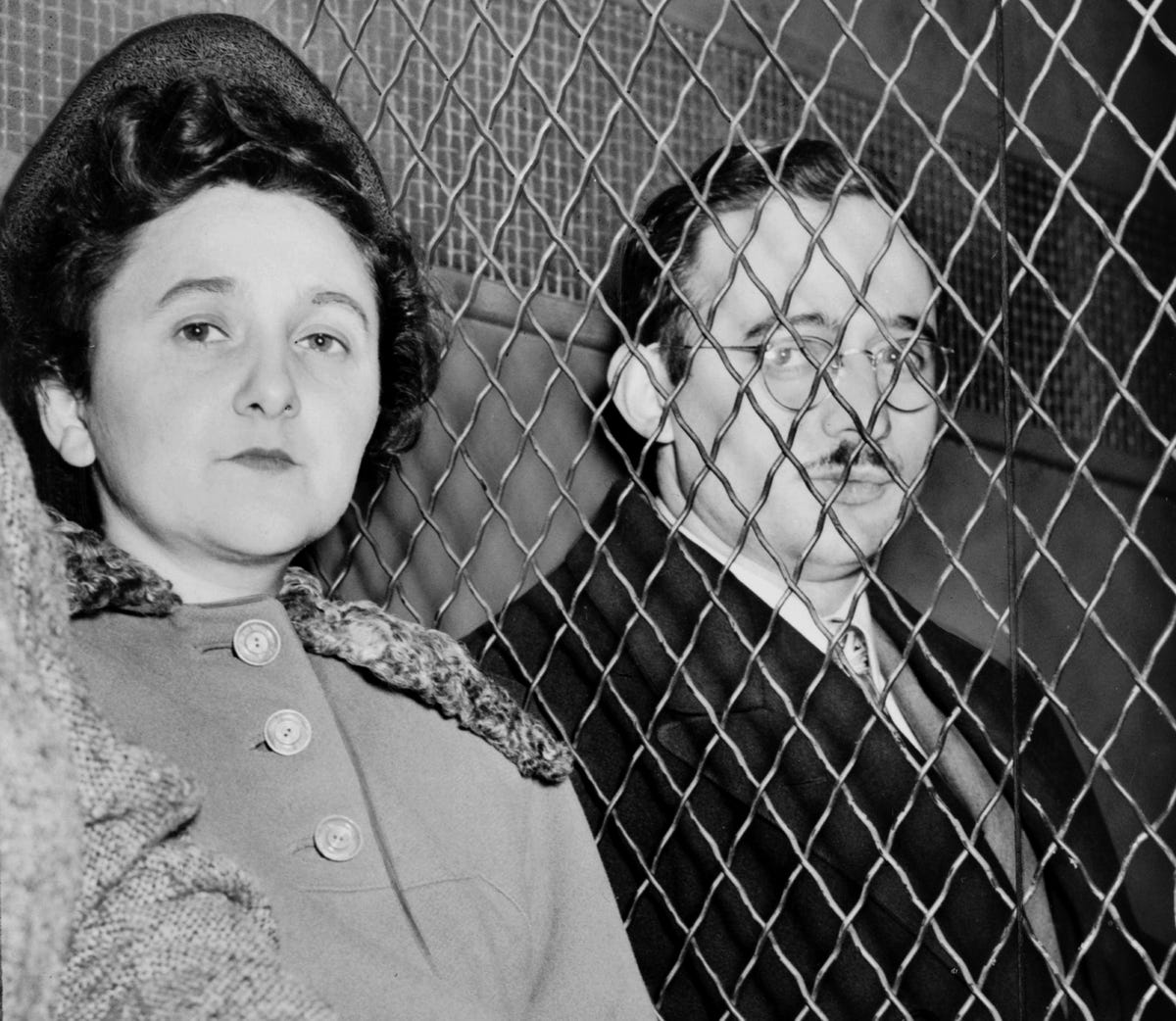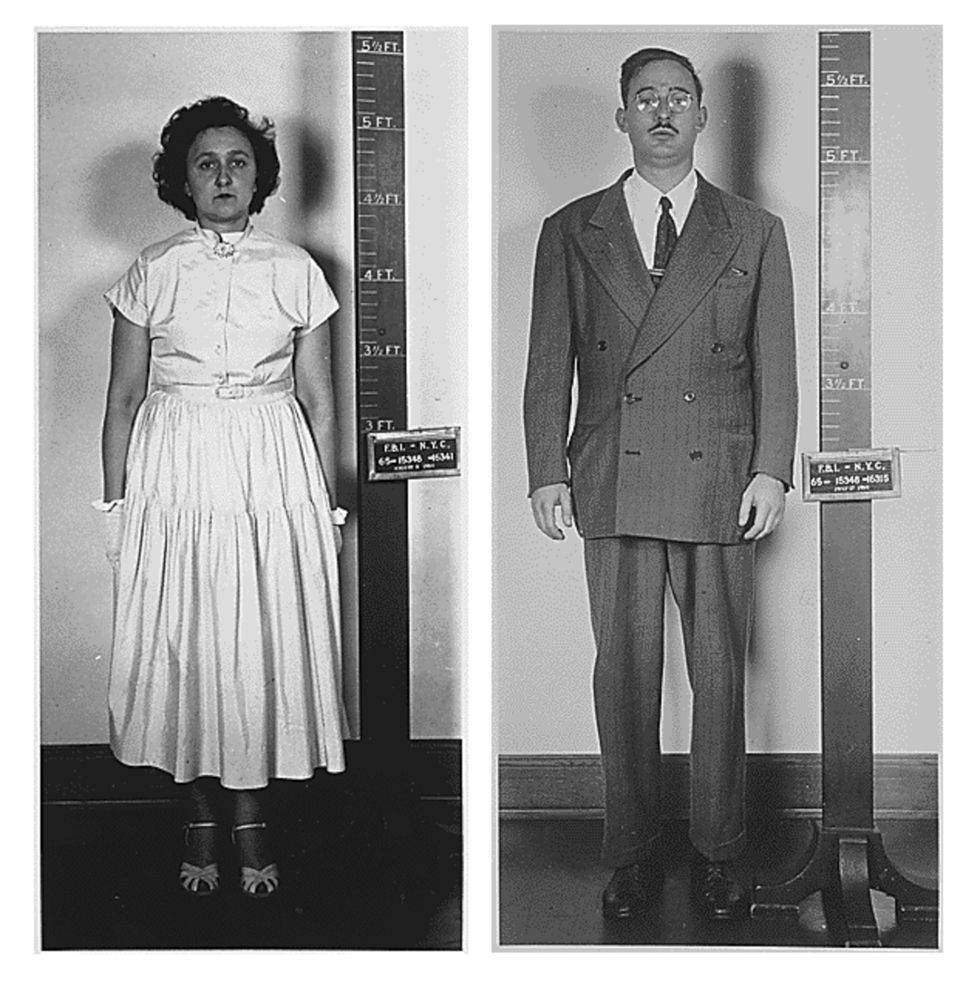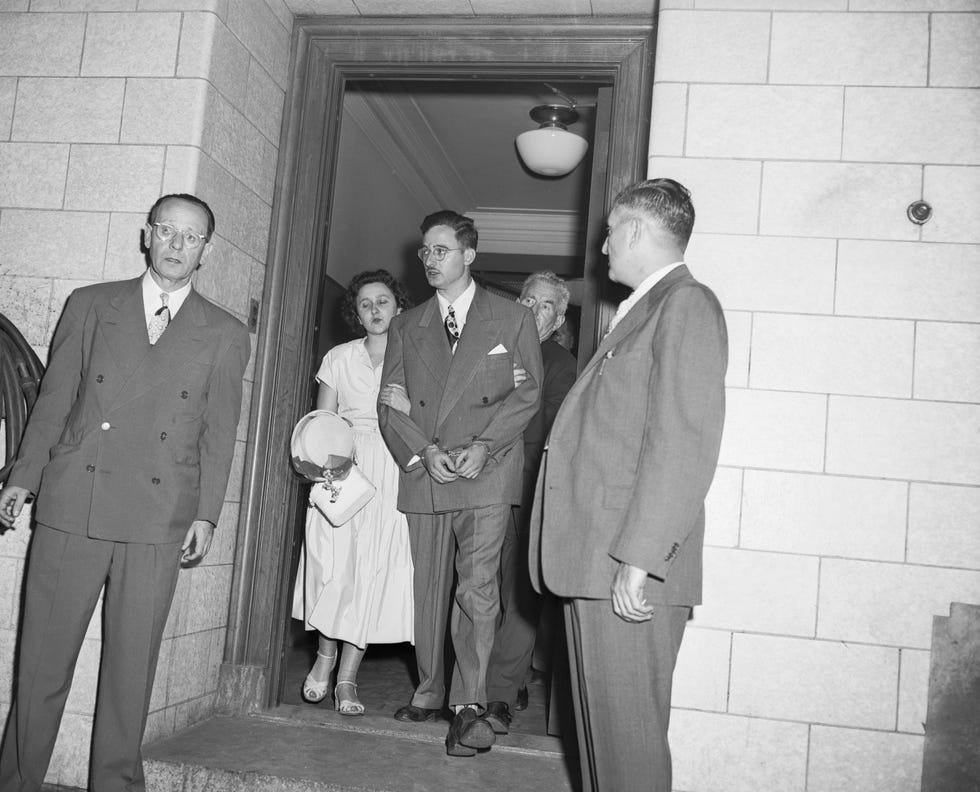You are viewing the article Julius and Ethel Rosenberg: Their Case, Trial and Death at Tnhelearning.edu.vn you can quickly access the necessary information in the table of contents of the article below.

The story of Julius and Ethel Rosenberg, who were convicted of conspiracy to commit espionage in 1951, reads like something out of a John le Carré novel with its components of shadowy spies, corrupted trial proceedings and family betrayal.
It also captures the real-world dangers that were rife in these days of Cold War paranoia, the threat of a Red Scare powerful enough to bring about the controversial executions of the couple that left their young children orphaned.
READ MORE: Charlie Chaplin and 6 Other Artists Who Were Blacklisted in Hollywood During the Red Scare
The Rosenbergs recruited a family member to relay Atomic secrets
Ethel Greenglass and Julius Rosenberg were both born into immigrant Jewish families in New York City during World War I. Their time at high school intersected briefly – Ethel was nearly three years older – but they became acquainted through their devotion to the Young Communist League and were married in 1939.
Julius became a civilian engineer with the U.S. Army Signal Corps and cut formal ties with communist organizations, but by late 1942 he was working with Soviet intermediaries to relay military secrets to the then-American ally.
By 1945, he had assembled an espionage ring of engineers, scientists and machinists that included his old City College classmate Morton Sobell. It also included his brother-in-law David Greenglass, who was then involved with the Manhattan Project – the creation of the atomic bomb – at a facility in Los Alamos, New Mexico.
The apprehension of a British spy set off a string of arrests
The first shoe to drop in the case came with the arrest of German-born British physicist Klaus Fuchs on February 2, 1950. Fuchs had also worked at Los Alamos and passed along information to the Soviets independently of the Rosenbergs, though they shared a crucial link with their courier, Harry Gold.
In May the FBI hauled in Gold, who pointed his finger at another common denominator, Greenglass. The dominoes continued to fall with Julius’ apprehension in July and Ethel’s arrest in August, with Sobell discovered to be hiding in Mexico at that time.
After Greenglass pleaded guilty, the trial for the Rosenbergs and Sobell began on March 6, 1951, in the Southern District of New York. Making little attempt to portray himself as impartial, Judge Irving R. Kaufman opened the proceedings by declaring: “The evidence will show that the loyalty and alliance of the Rosenbergs and Sobell were not to our country, but that it was to Communism.”
Greenglass provided crucial testimony against the Rosenbergs
The case against the Rosenbergs largely hinged on the testimonies of Gold and Greenglass. Gold recalled how he had met Greenglass in Albuquerque, New Mexico, in June 1945, with the passcode “I come from Julius.” After each confirmed the shared allegiance by producing a “passport” of a cut-off Jell-O box top, Gold paid $500 for information on the atomic bomb.
Greenglass testified that the Rosenbergs began lobbying his wife, Ruth, to get her husband involved in the espionage ring by November 1944. He returned to New York City on furlough in January 1945, at which point he showed Julius his notes and a sketch of a high-explosive lens.
Even more damning, Greenglass described another meeting at the Rosenbergs’ New York City apartment in September 1945, during which time Ethel typed up his shoddy, hastily scribbled notes.
To this point, the government’s case against Ethel was largely nonexistent; now, her brother had portrayed her as a willing co-conspirator. Chief prosecutor Irving H. Saypol leaped all over this account, dramatically telling the jury how she “sat at that typewriter and struck the keys, blow by blow, against her own country in the interests of the Soviets.”
Julius and Ethel took the stand in their defense, but other than denying the charges, they largely evoked the Fifth Amendment on matters of espionage and their involvement in the Communist Party, their silence amplifying the testimony against them.
Albert Einstein and the Pope led calls for clemency
On March 29, 1951, the jury returned a verdict of guilty against the trio charged. Judge Kaufman imposed the death penalty on Julius and Ethel, telling them, “I consider your crimes worse than murder.” He spared the life of Sobell, who was not involved in the passage of atomic secrets and sentenced him to 30 years in prison.
A death sentence, especially for the parents of two young boys, became a major source for debate, with Albert Einstein and Pope Pius XII among the influential figures who urged the U.S. government to show mercy. However, the legal appeals and requests for clemency, to President Truman and then-President Eisenhower, all fizzled.
After a last-minute stay of execution was overturned, on June 19, 1953, Julius and Ethel were electrocuted at Sing Sing Prison in Ossining, New York, making them the first American civilians to be executed for espionage during peacetime.
Greenglass later admitted to lying on the stand
The case remained a source of intrigue for scholars who argued about the evidence against the Rosenbergs, the clear bias of the presiding judge and the harshness of the verdict.
But there were more twists to be uncovered. In 1995, the National Security Agency released a half-century-old trove of decrypted Soviet messages from the Venona Project which provided clear evidence of Julius’ espionage.
Four years later, Sam Roberts’ The Brother: The Untold Story of the Rosenberg Case contained new bombshells from the reclusive Greenglass, including the admission that his wife possibly typed up the notes during the infamous September 1945 meeting, and that he told a different story on the witness stand to protect his immediate family.
The release of grand jury testimony in 2008 seemingly confirmed that account, while also providing inconsistencies between what Gold said in private and in public. That year, Sobell also went on record to confess to his and Julius’ involvement with the Soviets, though he insisted that his colleague’s information was useless to the Eastern power, and that Ethel was guilty only of “being Julius’ wife.”
The various revelations have prompted the Rosenbergs’ surviving sons, Michael and Robert Meeropol, to launch an effort to have their mother formally exonerated. They were unable to win over President Obama, but there may be more chapters to come in this long-running Cold War saga.
Thank you for reading this post Julius and Ethel Rosenberg: Their Case, Trial and Death at Tnhelearning.edu.vn You can comment, see more related articles below and hope to help you with interesting information.
Related Search:





